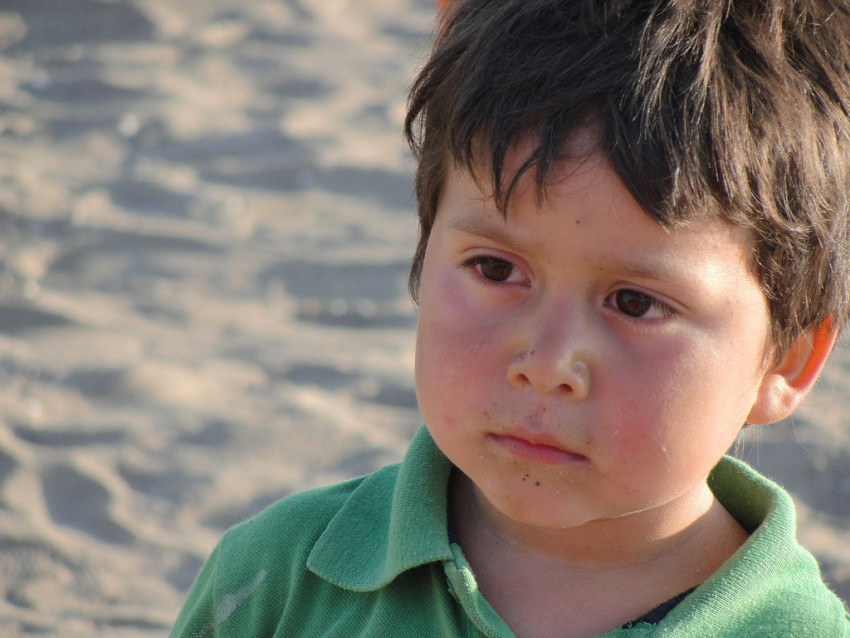Bullying is a serious mental and physical public health issue that affects countless young people every day. It is neither a normal rite of passage nor an unavoidable reality of childhood, and should
never be accepted as such. Whether physically or emotionally rendered, bullying is trauma, pure and simple, and your older child should be supported by you as their parent to combat the ill effects of these harsh, cruel and insensitive actions.
 Children who are perceived by others as weak, socially isolated, quiet, fearful , different, disabled, depressed, less popular, unlikeable, annoying, or have low self-esteem are often the targets for bullies. Your internationally adopted child may be considered to be in one or more of these categories, especially if they have recently arrived in the United States. Whether it is because they do not speak English well, have not yet made many friends, are still grieving for their homeland, or shy away from larger groups of their peers, your child may become the focus of a bully’s negative attention. Bullying can occur anywhere—in cities or rural communities, private or public schools, sports or educational teams, church youth groups or community centers, local malls or public parks—so do not automatically assume that your child could be immune to it.
Children who are perceived by others as weak, socially isolated, quiet, fearful , different, disabled, depressed, less popular, unlikeable, annoying, or have low self-esteem are often the targets for bullies. Your internationally adopted child may be considered to be in one or more of these categories, especially if they have recently arrived in the United States. Whether it is because they do not speak English well, have not yet made many friends, are still grieving for their homeland, or shy away from larger groups of their peers, your child may become the focus of a bully’s negative attention. Bullying can occur anywhere—in cities or rural communities, private or public schools, sports or educational teams, church youth groups or community centers, local malls or public parks—so do not automatically assume that your child could be immune to it.
The “old” styles of bullying such as physical injury, stealing one’s lunch or lunch money, or calling someone inappropriate names has largely been replaced in older children by cyberbullying and inflicting emotional distress. Reaching a larger audience aided by internet and smart phone technology has enabled the bully, or child abuser, to more effectively inflict shame, fear, distress, and embarrassment on another child. It allows the bully to do so in a manner that keeps him or her more removed from the abuse as posts and messages can often be done anonymously. Cyberbullying is a way of gaining power more quickly and permanently over the bullied child and it allows the abuser to reach his or her goal of dominance.
So what can you do as a parent to combat bullying? The answer is plenty!
First, take quick action! Bullying can have very serious effects on your child. If you suspect your child is being bullied, talk to them. Let them know that you care and are concerned. Be supportive and gather helpful information about what is happening to them. Stay calm and reassure your child they will be OK.
Second, ask questions! Warning signs include lost or damaged clothing or personal belongings, unexplained physical injuries; nightmares or an inability to sleep; self-destructive behaviors; decreased self-esteem; frequent physical ailments such as headaches, stomach aches or faking illnesses; changes in eating habits such as not eating, binge eating, skipping meals, or refusing to eat while at school; increasingly poor grades or refusal to attend school; or increased tendencies for isolation and avoiding friends. You know your child best, so pay attention to behaviors that deviate from their norm.
Third, if your child attends school, talk to his or her teacher to ascertain if any school activities are causing these behaviors, find out about the relationships your child has with other children when at school, and if the teacher has noticed and behaviors which would indicate bullying has occurred. Express your concerns and ask that the teacher encourage other adults to take notice. Familiarize yourself with the school’s policies on bullying. Be sure that the school counselor and principal are aware of the problem.
Fourth, if you know that bullying has occurred, whether at school or in the community, report it to the authorities. Bullying can have serious effects. There is nothing worse than doing nothing! Local police are familiar with the intricacies of cyberbullying and often have staff dedicated to this problem.
Fifth, if cyberbullying is the issue, instruct your child not to respond to cyberbullying messages. Save all evidence of such messages or texts and record the times, dates and descriptions of what occurred. Block the person who is sending the messages. Use this saved evidence to make reports to your internet carrier, cell phone service provider, local police, and school officials. Be aware of what your child is doing online, with whom and when. Ask for their passwords but only use them in case of emergency. Establish house rules about technology use in your home, including policies on what not to share on line, who not to share it with and how to remain safe when online.
There are many good resources for both parents and children related to bullying. The USDHHS app KnowBullying has conversation starters and warning signs for parents. The StopIt app allows students to report cyberbullying anonymously to school officials and other adults directly from their smart phones. This government website has a wealth of information. Local organizations such as Prevent Child Abuse, your Department of Education or agencies who provide children’s services are also good resources for education, training and prevention activities.
All children want to feel supported, protected and safe. All children need an adult to champion their needs. Advocating for your child in a bullying situation is one of the best ways to demonstrate that love.
Photo Credit: Javier Ignacio Acuña Ditzel
